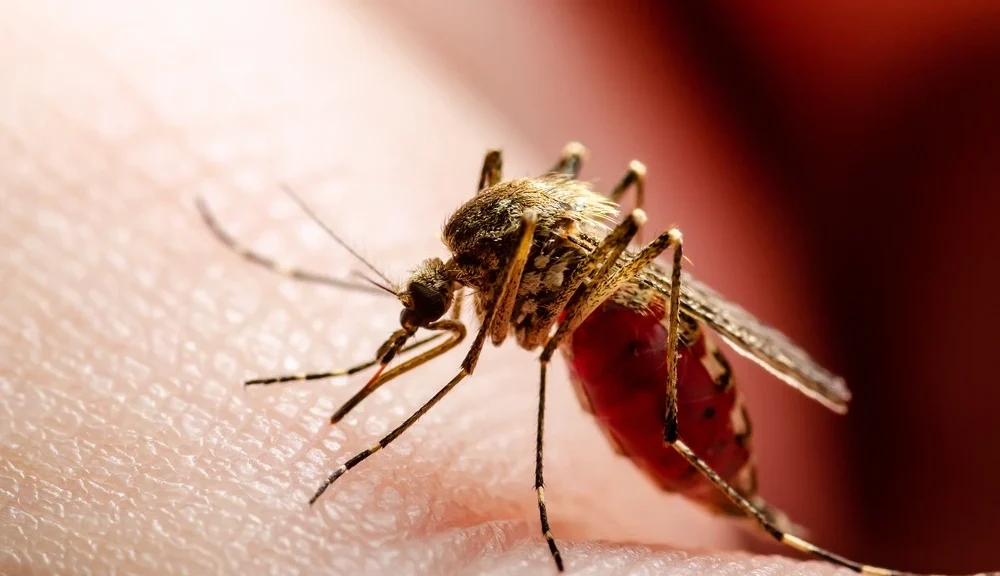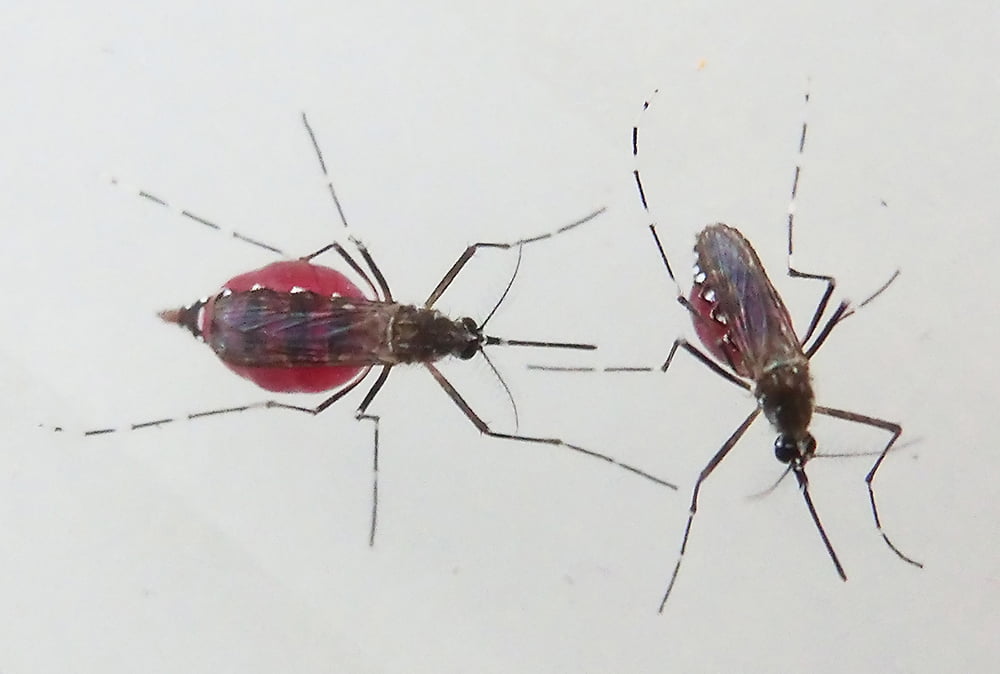Mosquitoes can drink blood multiple times in one night until they are full. Female mosquitoes feed on blood to lay eggs, resting for a few days in between feedings.
Mosquitoes have different feeding patterns, with some biting during the day and others at dusk. Male mosquitoes, on the other hand, do not feed on blood and primarily consume plant nectar. Understanding the feeding habits of mosquitoes is crucial in implementing effective pest control measures to prevent diseases spread by these insects.
By learning about their behavior, we can better protect ourselves and our communities from the risks associated with mosquito bites.

Credit: entomologytoday.org
Unveiling The Mystery Of Mosquito Feeding Habits
Mosquitoes feed on blood until full, resting for 2-3 days before laying eggs. Female mosquitoes bite to drink blood.
Mosquito Feeding Behavior
Mosquitoes are well-known for their annoying bites, but have you ever wondered about their feeding habits? Understanding how often mosquitoes drink blood can help us better protect ourselves from these pesky insects. Let’s dive into the fascinating world of mosquito feeding behavior and explore the frequency of their blood meals.
Frequency Of Blood Meals
Mosquitoes have a unique feeding behavior that sets them apart from other insects. While both male and female mosquitoes feed on plant nectar, only the female mosquitoes require blood to develop their eggs. This is why female mosquitoes are the ones responsible for those itchy bites.
Female mosquitoes typically feed on blood every few days. After finding a suitable host, usually a warm-blooded animal or human, the mosquito inserts its proboscis into the skin and begins to extract blood. The mosquito will continue to feed until it is full, which usually takes a few minutes.
Once the female mosquito has consumed enough blood, she will rest for a couple of days to digest the meal and develop her eggs. During this resting period, the mosquito will not actively seek another blood meal. Instead, she will focus on finding a suitable location to lay her eggs, such as stagnant water sources.
It’s important to note that the frequency of mosquito blood meals can vary depending on factors such as environmental conditions, species, and availability of hosts. Some mosquito species may feed more frequently, especially if resources are scarce.
To put it simply, female mosquitoes will continue to bite and feed on blood until they are full, and then they will rest and lay their eggs before seeking another blood meal.
Understanding the feeding behavior of mosquitoes can help us develop effective strategies to prevent mosquito bites and control their populations. By eliminating stagnant water sources, using insect repellents, and wearing protective clothing, we can reduce our risk of being bitten by these blood-thirsty insects.
The Process Of Mosquito Feeding
Identification Of Target
Mosquitoes are attracted to their hosts by body heat and carbon dioxide emissions.
Blood Consumption Process
- Mosquitoes insert their proboscis into the skin to locate a blood vessel.
- They secrete anticoagulants to prevent blood clotting.
- Blood is sucked up through the proboscis until the mosquito is full.
Female mosquitoes rest for a few days after feeding before laying eggs.
Factors Affecting Mosquito Feeding
Environmental Factors
Mosquitoes are highly influenced by environmental conditions when seeking blood meals. Factors like temperature, humidity, and light play a crucial role in their feeding habits. Mosquitoes tend to be more active in warm and humid environments, making these conditions ideal for increased blood-feeding activity.
Host-related Factors
The availability and attractiveness of hosts also impact mosquito feeding behavior. Host-related factors, such as body heat, odor, and carbon dioxide emissions, determine the suitability of a host for feeding. Mosquitoes are attracted to hosts with higher body temperatures and specific body odors, making them more likely targets for blood meals.
Understanding Mosquito Biology
Mosquitoes drink blood as often as needed until they are full. A female mosquito will continue biting until satiated, resting for a few days before laying eggs. Male mosquitoes, on the other hand, feed on plant nectar and juices.
Differences Between Male And Female Mosquitoes
Mosquitoes are known for their itchy bites, but not all mosquitoes are created equal. In fact, there are significant differences between male and female mosquitoes. While both male and female mosquitoes feed on nectar, only female mosquitoes feed on blood. This is because blood is essential for their reproductive cycle.Role Of Blood In Reproduction
When a female mosquito feeds on blood, she uses the protein and iron in the blood to produce eggs. Without blood, female mosquitoes cannot reproduce. After feeding on blood, a female mosquito will rest for a couple of days before laying her eggs. This is why female mosquitoes are often referred to as “bloodsuckers.”It is also important to note that female mosquitoes can feed on blood multiple times in their lifetime. While a mosquito will typically feed until she is full, she may return to feed again if she needs additional nutrients for egg production.In contrast, male mosquitoes do not feed on blood and rely solely on nectar for their survival. They do not play a role in the reproductive cycle of mosquitoes.In conclusion, understanding the biology of mosquitoes is essential in controlling their population. By knowing the differences between male and female mosquitoes and the role of blood in their reproduction, we can take steps to protect ourselves from mosquito bites and prevent the spread of mosquito-borne illnesses.Health Implications Of Mosquito Bites
Being a common nuisance, mosquito bites are not just itchy and annoying, but they can also have serious health implications. In addition to causing discomfort, mosquitoes are known vectors for several life-threatening diseases. Understanding the health implications of mosquito bites is crucial for taking preventive measures to minimize the risks associated with these tiny but dangerous insects.
Transmission Of Diseases
Mosquitoes are notorious for transmitting various diseases, including malaria, dengue fever, Zika virus, and West Nile virus. When a mosquito bites an infected person, it can pick up the virus or parasite, and then transmit it to the next person it bites. This transmission of diseases through mosquito bites poses a significant public health threat in many parts of the world.
Allergic Reactions
For some individuals, mosquito bites can trigger allergic reactions, leading to symptoms such as swelling, redness, and itching that extend beyond the bite area. In severe cases, allergic reactions to mosquito bites can cause anaphylaxis, a life-threatening condition that requires immediate medical attention.

Credit: mosquitojoe.com
Unusual Mosquito Feeding Behaviors
Mosquitoes are known for their unique and often puzzling feeding behaviors. Understanding these behaviors can provide valuable insights into their biology and help in devising effective strategies for mosquito control.
Excessive Blood Consumption
When a mosquito can’t stop drinking blood, the consequences can be quite alarming. These relentless feeders are capable of consuming in excess of four times their weight in blood, a behavior that can lead to potentially fatal outcomes for the mosquito.
Potential Risks To Mosquitoes
Mosquitoes that engage in excessive blood consumption may reach a point where their bodies can no longer accommodate the ingested blood, leading to a potential bursting of their abdomen. This phenomenon, observed in laboratory settings, highlights the grave risks associated with such extreme feeding behaviors.
Human Responses To Mosquito Bites
Mosquitoes can bite as many times as they need to until they are full. After feeding on blood, a female mosquito rests for a couple of days before laying her eggs. Male mosquitoes, on the other hand, feed on plant nectar and juices and do not consume blood.
Preventive Measures
To prevent mosquito bites, you can take several measures:
- Wear long-sleeved shirts and pants to cover your skin.
- Use mosquito repellent on exposed skin.
- Install screens on windows and doors to prevent mosquitoes from entering your home.
- Eliminate standing water around your home, as mosquitoes breed in stagnant water.
Treatment Of Mosquito Bites
If you do get bitten by a mosquito, there are several ways to treat the bite:
- Clean the bite with soap and water to prevent infection.
- Apply a cold compress or ice to reduce swelling and itching.
- Use over-the-counter antihistamines or topical creams to relieve itching.
When a mosquito bites a human, it injects saliva into the skin, which contains proteins that cause an immune response. This response leads to itching, redness, and swelling around the bite. Different people have different responses to mosquito bites, with some experiencing more severe reactions than others. Some people may also experience an allergic reaction to mosquito bites, which can cause hives, fever, and difficulty breathing.

Credit: www.newscientist.com
Frequently Asked Questions
How Many Times Will A Mosquito Bite You In One Night?
A mosquito can bite you multiple times in one night. There is no specific limit to the number of bites a mosquito can inflict. Female mosquitoes will continue to bite and feed on blood until they are full. After feeding, they rest for a couple of days before laying their eggs.
How Often Do Mosquitoes Feed On Blood?
Female mosquitoes feed on blood until full, resting for 2-3 days before laying eggs. No set limit on bites.
Is It Better To Let A Mosquito Finish?
It is not better to let a mosquito finish as they can transmit diseases through their bite.
Conclusion
Mosquitoes can drink blood until they are full, with a female mosquito resting for a few days before laying eggs. Only female mosquitoes feed on blood, while males feed on plant nectar. Understanding their feeding habits can help in implementing effective control measures.
Related posts:

I’m MD Tanvir, and I bring years of expertise gained from working closely with pest control companies to the forefront. My journey in the industry has inspired me to launch Bug Battler, a platform aimed at equipping people with the know-how to combat pests autonomously. Through Bug Battler, I aim to empower individuals with practical insights to tackle pest infestations effectively.

